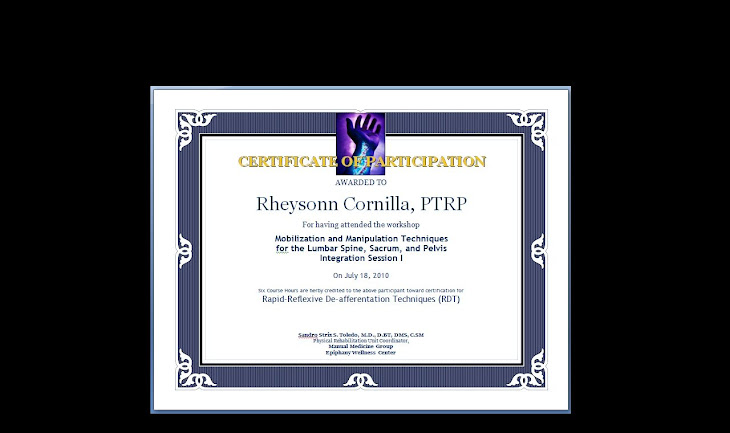I am going over this again because I think it it vitally important:
You say
"But would we still need the charade of doing something, in order to get the
psychological effect?"
psychological effect?"
Even if this was in jest (which it probably was) it must be clear that any form of deceit in the consultation with the patient is counter-productive. ....
You have to genuinely believe in what you are doing. Which is where our training and our science and our discipline are so important.
We have to hunt down self illusion and wooly thinking. We have to resist the the idea that rigor and training don't matter and 'so let's all get together and do healing work'.
There are many here on the forum whom embody these principles.. ..most recently Robert and David who may disagree at times but both clearly are on the same quest for truth and knowledge.
JJ
Brian -
That is a very interesting and relevant point. I always wonder how much my
patients improve because of what I do to them with my hands, and how much is
despite what I do but because i am doing it "nicely" - being reassuring,
attentive etc.
Maybe we should concentrate less on our techniques and more on being "nice".
But would we still need the charade of doing something, in order to get the
psychological effect?
Martin
--- In OsteopathyForAll@ yahoogroups. com, brian mckenna
wrote:
>
> i think it was in the book the biomechanics of LBP that they said
something like "when people consult you they are not saying they have back
pain, but that they have back pain and cannot cope any more"
> by helping them to cope through support in all its forms, manual as
well as psychosocial can we prevent them becoming chronic and or save the
NHS money by reducing care seeking behaviour?
>
------------ --------- --------- ------
"Find it, fix it, and leave it alone. But make sure you find it, make sure
you fix it, before you leave it alone!!" -Dr. Andrew Taylor Still














No comments:
Post a Comment